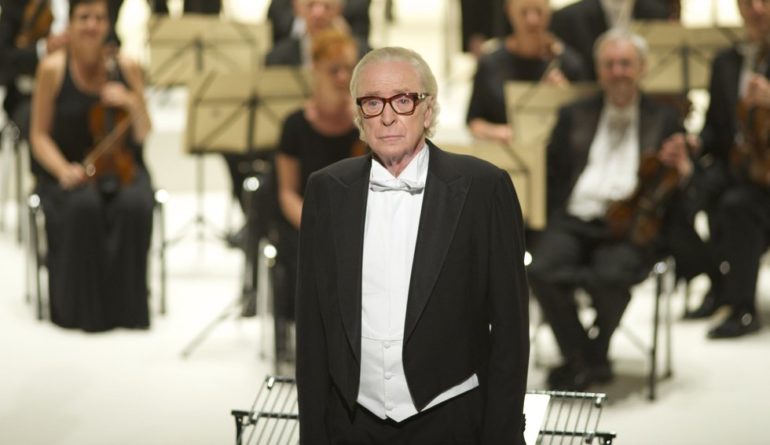Youth? As a title, it reveals little; as a subject, it’s unwieldy. But that’s never been a deterrent to Paolo Sorrentino. The Italian writer/director has prided himself on taking journeys to find no guaranteed answers. A lack of answers doesn’t matter so much when the search for them yields sights and sounds of undeniable delight. Then again, the closer Sorrentino comes to answers, the better the films tend to be. For example, his looks at the workings of Italian politics and society, Il Divo and The Great Beauty, proved that the dangers of politics are no match for the beauty of Italy herself. Once out of Italy (and more crucially, not working in Italian), Sorrentino appears to be on shakier ground. His Irish-American sojourn This Must Be The Place amounted to relatively little beyond whimsy, though even then there were pleasurable nuggets to be found therein. Bolstered by The Great Beauty’s international acclaim, Sorrentino ventures beyond Italy again to a near neighbour. In the Swiss Alps lies inspiration, music and Michael Caine.
More specifically, Michael Caine is lying in a mineral bath in an Alpine resort. Caine plays Fred Ballinger, a once-acclaimed composer and conductor. His glasses and combed-back look hint that Sorrentino might be missing his regular muse Toni Servillo, whilst his sad frown and pallor suggest the luxurious surroundings he’s checked into might not be having the desired effect. Following on from The Great Beauty, Youth sees Sorrentino changing tack. The former film was about Servillo’s semi-retired writer Jep undertaking a search for beauty. Youth is also about older characters, but they’ve given up searching. Ballinger is but one of a number of residents at this resort, and is accompanied by his best pal, film director Mick Boyle (Harvey Keitel). Mick’s ironing out a screenplay he’s hoping to direct, though both men would be happy just to be able to pass a few drops of water in the morning without hassle. Caine and Keitel are two actors we’ve watched age onscreen for the best part of five decades, and Youth is well aware of the burden of such histories. Both the title and the film is playfully ironic. Both men, as both characters and actors, have been through their trials and tribulations, we now find them at their most relaxed and chipper, accompanied by Sorrentino’s tasteful exuberance. It might see them in the occasional pratfall here, but it’s a damn sight more dignified an exploration of onscreen aging than Robert De Niro hitting on women young enough to be his granddaughter in Dirty Grandpa. As Ballinger wryly observes at one point “Levity is an irresistible temptation, because levity is also a perversion.”
Youth appears to gives in to this temptation, with a rambling pace and pleasantly breezy tone. The two men spend their days contemplating their projects, both finished and otherwise. While Mick brainstorms on his script, Ballinger is tempted with an offer to conduct a concert for the Queen. While Sorrentino is constantly fascinated by the perils of the artist, these particularly monied examples don’t immediately elicit empathy. The Great Beauty overcame this potential peril with an assured style and pace that never let up. Here, we shuffle along in a riskily episodic way until truths start rising up to the surface. The strifes of fellow resort guests, like Paul Dano’s Johnny Depp-alike actor Jimmy Tree, court whimsy too readily to engage, but then the personal strifes of Mick and Fred arrive to inject some pathos to keep Youth from floating away. Fred’s daughter Lena (Rachel Weisz) joins her father on his break, and takes the opportunity to bring up some home truths. In a stunning monologue told entirely from a massage bed, Weisz steals the entire film away from everyone with a moment of surprising heartbreak. A similar showstopping scene comes from Jane Fonda, cropping up for a late extended cameo as Mick’s muse/straight-talking friend. In between, Sorrentino and his DoP Luca Bigazzi pepper the film with whispers of underplayed emotionality. It’s this ability to tap into emotions so readily that has earned Sorrentino accusations of being a sentimentalist or, even worse, an arch manipulator. Yet, he elicits emotions primarily through stylistic choices, through lighting and music, so it’s hard not to be impressed by this ability. This, plus the game performances, give Youth its heft.
Being a film about a composer, music plays a big part in Youth. Besides an eclectic soundtrack, from Mark Kozelek to David Byrne to Claude Debussy, music is given an inescapable presence here. Kozelek makes an appearance, and Paloma Faith crops up as a love rival to Lena. Youth is not a musical, but it has a surfeit of musicians and artists that give it the sure and fleet-footed feel more akin to a musical. It means that Youth appears more lightweight than some of Sorrentino’s work but, like its Alpine setting, it boasts a pleasant and largely-undemanding ambience, full of good company.

